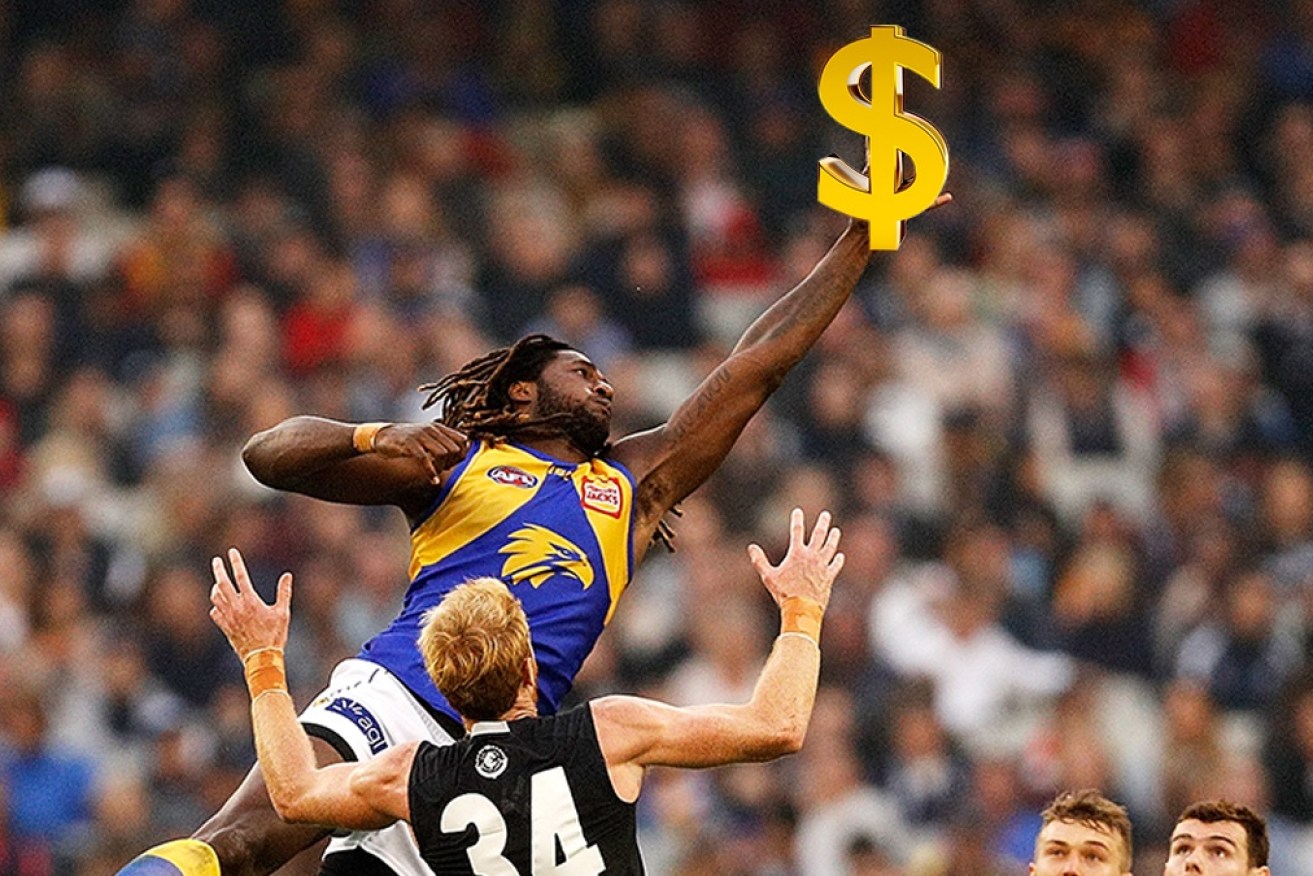Michael Pascoe: $4.5 billion says stop political mates funding Big Sport


The AFL broadcast rights deal speaks volumes about the need for Big Sport to stand alone, Michael Pascoe writes. Photo: TND
There is an unease abroad about the Morrison government gifting $18 million to the Governor-General’s pet charity before said charity seemed to be anything more than an idea, leading to a suspicion of “who you know” being what you need to grab millions of taxpayers’ dollars.
Such is the unease that four parliamentarians have moved to disallow the grant to the Governor-General’s Australian Future Leaders Foundation.
There are certainly oddities about the AFLF and the role of relationships in obtaining public money – but it’s relatively small beer and not nearly as odd as the “who you know” and political favouritism that goes into throwing much larger amounts at big businesses in plain sight.
On Tuesday, the AFL should have blown full time on dodgy grants by mates for mates in Big Sport – businesses as profitable and undeserving as any when it comes to government largesse.
No need for handouts
Courtesy of $4.5 billion for broadcast rights – and never mind all its other sponsorship deals – the AFL declared it has zero need for federal or state government cash.
Underwritten by the broadcast deal, the AFL will be a billion-dollar business next year. It had revenue nudging $800 million in 2019 – its last “normal” season for which final figures are available.
The particular nature of AFL – a parochial game with negligible external competition for its talent – means its key costs are a matter of how much it wants to spend.
The $230 million paid to players in 2019 and the more that they will be paid this year are discretionary amounts – AFL players can’t really take their ball and go elsewhere.
The average AFL player wage of $389,000 this year doesn’t translate outside AFL.
(It is the nature of big professional sports that player payments end up grabbing most of the available spare cash, but with the restraint of trade over players that the AFL employs via the salary cap, the company at the top can retain control.)
Over the past five seasons, the AFL managed to boost its retained earnings by $175 million and never mind COVID’s impact.
Well connected
By any measure, it is a big business – so why do politicians fall over themselves to donate money to this particular big business?
The only rational answer is politics – mates, connections, buying votes. It’s not about sport for sport’s sake, spare me the nonsense claims of it being to encourage the kiddies to get fit, it’s about favours for the well connected and nobody is better connected than Big Sport, with the possible exception of Big Gambling.
In the AFL’s case, $10 million for the West Coast Eagles (“Australia’s most profitable sports club” according to the Australian Financial Review), $15 million for Collingwood, $15 million for the Sydney Swans … the federal money starts to add up. And then there’s the state government largesse and if you do it for those clubs what about…
If any AFL fans are still reading by this stage, there will be gnashing of teeth and claims of anti-Aussie Rules bias by this admitted rugby fan, but AFL only gets top billing by the size of its self-congratulations and timeliness of the broadcasting deal.
Political football
Rugby league’s NRL is equally undeserving. For example, the Queensland and federal governments donating millions to the Murdoch-controlled public company that is the Broncos is simply obscene.
Ditto the games the NRL has been playing with the NSW government over stadiums (stadia for the Latin speakers) and the grand final.
I don’t remember the NRL Party actually standing at the last election, but it is capable of behaving as if it won.
And, yes, even the claims of poor little rugby union (at least a genuinely international sport) on the taxpayer are dubious.
At the professional level, if you claim to be professional, be professional. Cut your cloth to fit – as sport does at the community level where it overwhelming funds itself.
If governments genuinely cared about youth involvement and fit, well-socialised kiddies, instead of buying photo opportunities and invitations to the corporate box with Big Sport, it should concentrate on making children’s sport more affordable.
For example, it would be a simple matter for government to take over the cost of insuring children’s sport – all sports, no code or gender discrimination involved.
And ban the professional levels of sport extorting money from the grass roots, making the parents of the boys and girls running around the park on a Saturday subsidise the six-figure salaries of the professional players and seven-figure salaries of executives.
But it won’t happen. Big Sport is too well connected, too strong a lobby, up there with the pubs and clubs poker machine industry in its hold over politicians and increasingly in bed with the gambling industry for that ends.
Instead, at the community level, the volunteers who do it for the love of their game and their children will soldier on, exploited (like the taxpayer) for their dedication.








